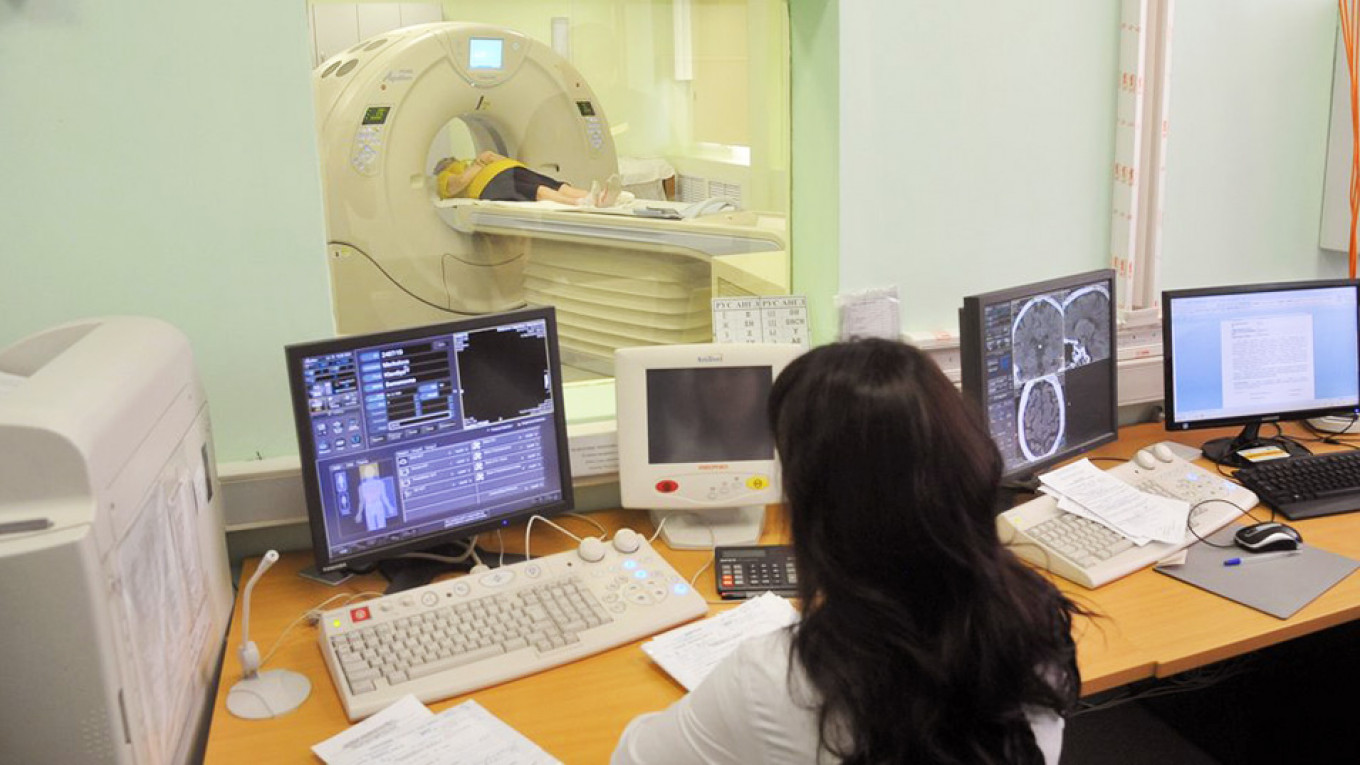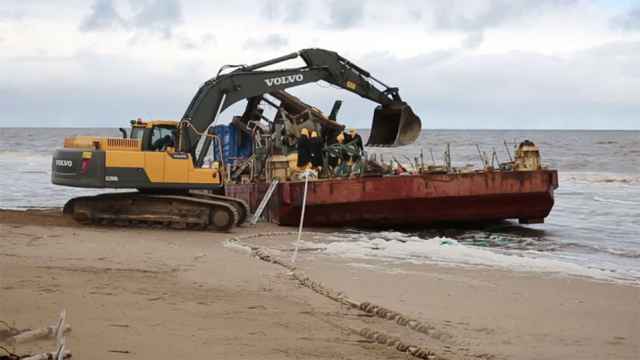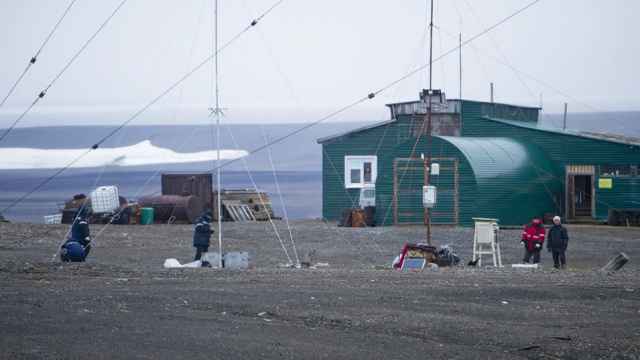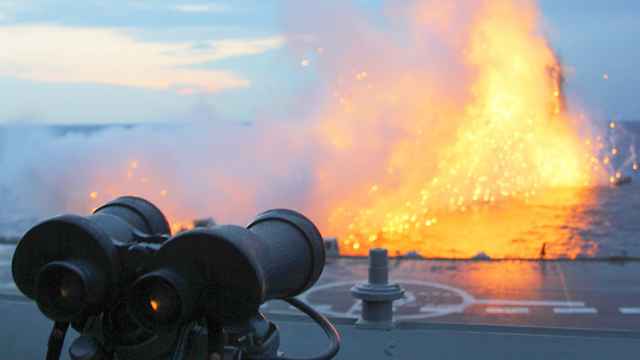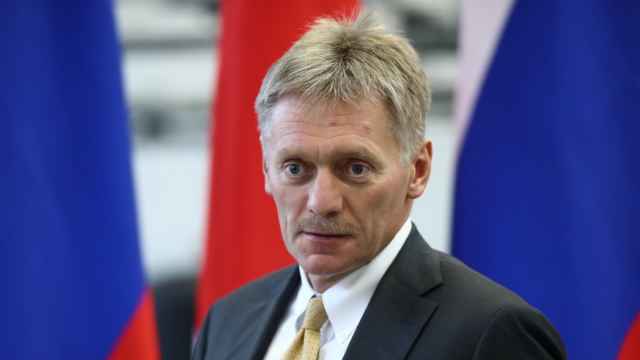A Russian doctor found to have a radioactive isotope in his body after treating victims of an Aug. 8 rocket engine explosion had been contaminated by food and not radiation, authorities said Friday.
Earlier, The Moscow Times reported that a group of doctors who treated the radiation victims had been flown to Moscow for medical checkups. One of the doctors was reportedly found to have Cesium-137 — a radioactive isotope that is a byproduct of the nuclear fission of uranium-235 — in their muscle tissue.
“Subthreshold” traces of Cesium-137 have been found in the unnamed doctor’s muscle tissue, the Arkhangelsk region’s administration said in a statement published on Friday.
“But specialists don’t associate this fact with [the doctor’s] participation in the incident relief effort” in the military town of Nyonoksa, it added.
The Health Ministry’s biomedical agency says Cesium-137 “tends to accumulate in fish, mushrooms, lichens and algae,” the Arkhangelsk region administration said.
“We can say with a fair degree of probability that it got into his body via food products which he'd eaten,” the administration added.
Government officials have given a muted, occasionally contradictory response in the weeks since the accident killed at least five people and led to a brief radiation spike.
Russia's state nuclear agency said the blast involved "isotope power sources" which it said came during a rocket test on a sea platform. President Vladimir Putin later said it occurred during testing of what he called promising new weapons systems.
Four of Russia’s nuclear radiation monitoring stations went silent days after the explosion, and doctors in the region have said they weren’t warned that they were treating patients exposed to radiation.
Reuters contributed reporting to this article.
A Message from The Moscow Times:
Dear readers,
We are facing unprecedented challenges. Russia's Prosecutor General's Office has designated The Moscow Times as an "undesirable" organization, criminalizing our work and putting our staff at risk of prosecution. This follows our earlier unjust labeling as a "foreign agent."
These actions are direct attempts to silence independent journalism in Russia. The authorities claim our work "discredits the decisions of the Russian leadership." We see things differently: we strive to provide accurate, unbiased reporting on Russia.
We, the journalists of The Moscow Times, refuse to be silenced. But to continue our work, we need your help.
Your support, no matter how small, makes a world of difference. If you can, please support us monthly starting from just $2. It's quick to set up, and every contribution makes a significant impact.
By supporting The Moscow Times, you're defending open, independent journalism in the face of repression. Thank you for standing with us.
Remind me later.


